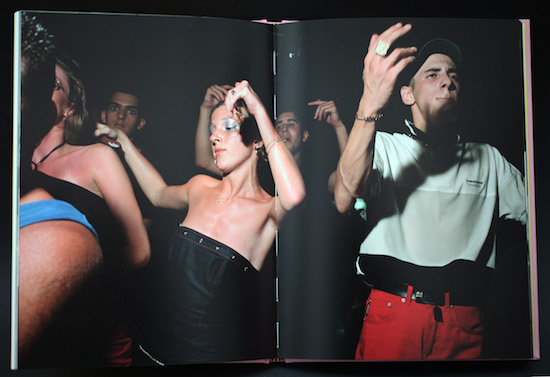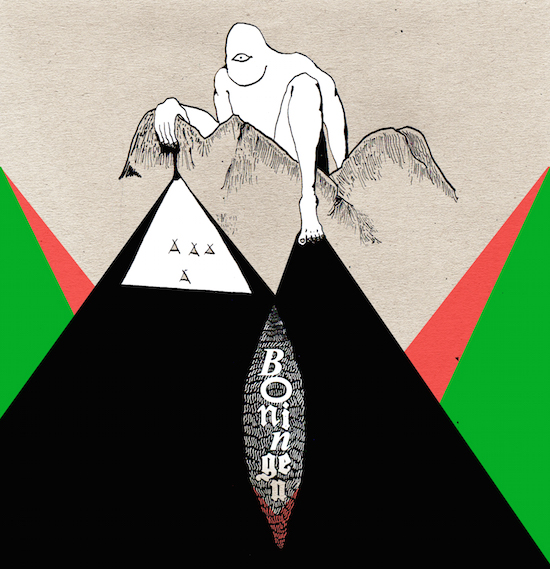Back in 2012 it was reported for the first time that sales of digital music had outstripped those of their physical counterparts. And, while ebooks still had some way to go in outdoing the sales of their paper parallels, it seemed that consumers were opting for a purer medium, acquiring just the singular work of art itself (be it in a sound file or a text file), untainted by the fetishistic quality of material ownership. To one school of thought, this seemed like progress: not only would potentially unsustainable physical production naturally drop in line with diminished demand, but a leaner model of artist-audience interaction could be established without the financial ramifications of creating and distributing a physically tangible work. To another, unavoidably, it would signify "the end of an era" and the death of everything once great about partaking in a culture of music consumption.
Of course, neither really worked out: the report seemed to herald the beginning of the slow death of physical music really only blew its trumpet for the CD — an inexplicably flimsy, low-budget affair with no real qualities of its own, and one that it seems in retrospect almost impossible to imagine taking root today. In 2015’s first sales quarter, vinyl sales in the U.S. were up by 53% having already hit an 18-year high in the UK at the end of 2014.
As an idea it might seem regressive at first, a kind of considered "fuck you!" to an increasingly digital-native culture and the (wrongly) perceived vacuousness of the Social Media Age. More likely, however, is that the fascination is something primal: physical media — like vinyl, or sculpture, or even paint on canvas — is positively totemic, stoically imbued with shared history and collective understanding. Physical media is fascinating to human beings because in it they see themselves: a complex, material vessel containing something even more intricate but altogether less corporeal. It is fetishistic in the truest sense of the word.
With that in mind, the idea — even the name — of this weekend’s Future Artefacts fair in London is worthy of recognition: collecting together purveyors of the physical who, while of course do so to commercial ends, push the ill-conceived boundaries of what physical media is and what we can achieve with it. From independent publishers and record labels, to technological craftspeople creating solid sculpture from the sonic nether-plane, Future Artefacts will bring together the familiar and the borderline-uncanny, in the hope of expanding — to borrow a much-overused phrase — what we talk about when we talk about physical media.
How do you define artefact — or, what’s the relevance of the term, with regard to creating physical media for what is, essentially, commercial consumption?
Rachael Robb — Stolen Recordings: I’d define artefact in this context as a designated moment defined by the terms of the artist and made in limited quantities. Whilst commercially produced they are objects of cultural and documentary relevance.
Alison Wood — REIFY: Artefact by definition means an object shaped by human workmanship. The translation and evolution of an idea into a physical artifact is significant and meaningful. An artefact is the physical manifestation and representation of the creative mind and process.
Gordon MacDonald — GOST Books: For GOST, an artefact would be a work which surpasses, in both timescale and esteem, it’s immediate cultural or commercial value. We try to make books which people treasure as part of the makeup of their understanding of the world.

In a heavily-digitised world, where things can be listened to, read — experienced — entirely virtually, what’s the place of physical media beyond a kind of ownership-fetishisation?
RR: In a way, listening to physical media slows down the consumption of music: it’s a very active and decisive process, and the object provides a tangible connection to the music. It’s great everything is so accessible virtually and that works for most people, but records are there for people who want to extend their experience.
AW: In a world is that increasingly more digital and ephemeral, I feel there is something human and knowable about a physical media. Its sort of a stake in the ground saying "This piece of media/content/idea is important and lasting."
GM: Sometimes it can just be a fetish object, but there is good in that. But books also have a permanence beyond that of digital media. The platform for a book is a table, and table will always be a table, and a book will always work on it. One is not at the mercy of Microsoft or Apple when making a book – they cannot upgrade a table to stop your book working on it. In this way, bookmaking can feel like a transgressive act, and more important, in the longterm, than some digital output.
And, in that vein, what do you see as the future of physical media (and what do you see as your role in that)?
RR: More niche — there’s not much point to a physical release of music these days unless it has something ‘other’. Coming from a fine art background the physical format is quite alluring to me, I like (and like making) objects, and as a small label it makes sense for us to continue, especially working with new, upcoming artists.
AW: Physical media is a medium or dimension of storytelling. I don’t think we will ever stop making stories physical. I am interested and excited by the convergence of our digital and physical realities. How we can create media and artefacts that brings these two closer together.
GM: I see the physical media, especially books, becoming more important as cultural and social markers. Our role is pretty small and discreet – we just want to make books that reflect some aspect of our time.

Do you think there’s a limit to what can be achieved with a physical product, as opposed to the seemingly infinitely-evolving possibilities of something digital?
RR: There’s a limit to the medium of vinyl, but it follows a historical format which it’s challenging to work within – but also like following a tradition. Whist the virtual world is seemingly infinite it’s not tactile, people will always like to possess and handle physical artefacts that hold meaning for them.
AW: In my opinion physical media is infinently-evolving as well. As technology moves us forward our ability to reify an idea, to create multi-sensory experience around an idea is only becoming greater.
GM: I think this questions is a little like comparing apples to oranges. Progress, digitally, does not mean that other media becomes redundant. It may be what the corporate world wants, but there are enough individuals and collectives making and selling physical objects for the made or ‘real’ object to hold a place. The physical object is constantly being reworked and sometimes cross-fertilised with digital technology. It’s not that things are made in opposition to progress, just that sometimes the physical object is the best outcome for an idea.
AW: Im excited that technology is at the point that we can begin to ask questions about the relationship between form and meaning. In creating REIFY I was investigating this relationship, trying to create a digital synesthesia — making sound something you can hear, see and hold.

Future Artefacts runs from 23 — 25 October at Shoreditch Studios, London


